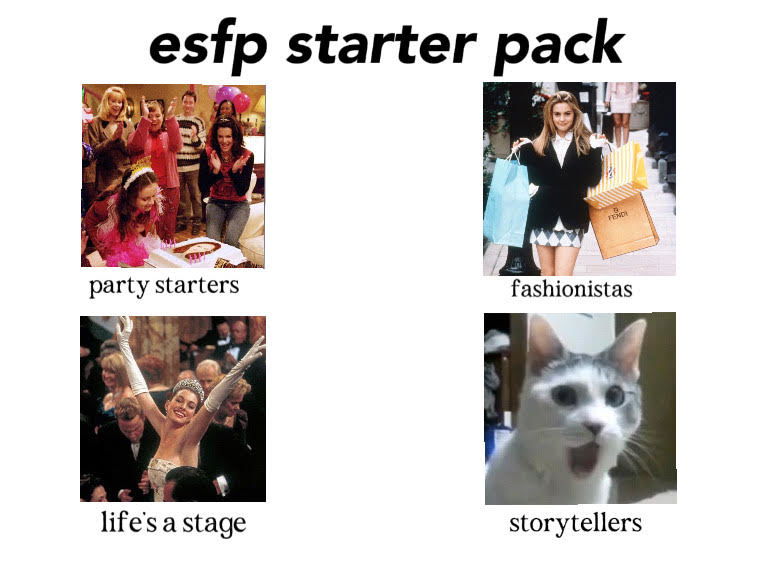a complete guide to the myers-briggs 16 personality types

The Myers-Briggs Type Indicator, often abbreviated as MBTI, is a well-established and frequently utilized tool for assessing personality traits. By classifying individuals into one of 16 unique personality types, the assessment seeks to provide insight into individuals' personality and has gradually found its way into educational settings, workplaces, and even personal relationships. Nevertheless, underneath its ubiquity lies an intricate and frequently misconstrued system. The widespread adoption of the MBTI test by millions globally is indicative of its impact on public perception and interest. However, its popularity has also led to the emergence of numerous misconceptions and stereotypes. A wide array of individuals perceive their personality type as an inflexible label, and these preconceived notions may result in misconceptions regarding the true nature of the MBTI.
The objective of today’s article is to conduct an extensive exploration of the Myers-Briggs Type Indicator. In this analysis, we will explore its origins, its four fundamental dimensions, and the classification of 16 personality types that it delineates. Beyond the basics, we will go into the criticisms and controversies surrounding the MBTI as well as the pragmatic implications in the realms of self-discovery, professional growth, and interpersonal connections. By the end of this article you should have a more comprehensive understanding of the MBTI and how it may be a valuable tool in understanding yourself and those around you.
𝐭𝐡𝐞 𝐛𝐚𝐬𝐢𝐜𝐬
In order to fully grasp the essence of the MBTI, it is imperative to understand its historical roots. The MBTI was originally developed through the collaborative efforts of Katharine Cook Briggs and her daughter, Isabel Briggs Myers, in the mid 1900s. Their objective was to develop a tool that would facilitate individuals in gaining insight into their own personalities, in turn enhancing their interpersonal connections. Drawing upon the psychological theories of Carl Jung, the MBTI was conceived as a means of classifying individuals into discrete personality types, determined by their preferences across four fundamental dimensions.
The core of the MBTI lies in its four dichotomies, each representing essential elements of one’s personality. These factors operate collectively to determine one’s distinct personality type. Let us delve into each of these four dimensions:
- 𝘦𝘹𝘵𝘳𝘢𝘷𝘦𝘳𝘴𝘪𝘰𝘯 𝘷𝘴. 𝘪𝘯𝘵𝘳𝘰𝘷𝘦𝘳𝘴𝘪𝘰𝘯: Extraversion and introversion are two distinct personality traits that reflect one’s preferred orientation toward the external world. Extraverts (E) tend to be outgoing, energized by social interactions, and drawn to external stimuli, whereas introverts (I) find solace in introspective activities, requiring periods of rest or downtime to replenish their energy, and tend to direct their attention towards their internal thoughts and emotions.
- 𝘴𝘦𝘯𝘴𝘪𝘯𝘨 𝘷𝘴. 𝘪𝘯𝘵𝘶𝘪𝘵𝘪𝘰𝘯: This dimension pertains to the manner in which individuals acquire information. Sensors (S) rely on concrete data obtained from their immediate environment, exhibiting a focus towards specific features and factual information. In contrast, intuitives (N) tend to exhibit a propensity for abstract cognition, are future-oriented, and concentrate on discerning patterns, possibilities, and connections that extend beyond the surface.
- 𝘵𝘩𝘪𝘯𝘬𝘪𝘯𝘨 𝘷𝘴. 𝘧𝘦𝘦𝘭𝘪𝘯𝘨: Thinking and feeling represent the decision-making process. Thinkers (T) are inclined to prioritize logical analysis and objective criteria as their primary factors in decision-making, while feelers (T) tend to place greater emphasis on empathy, personal values, and emotional considerations when making choices.
- 𝘫𝘶𝘥𝘨𝘪𝘯𝘨 𝘷𝘴. 𝘱𝘦𝘳𝘤𝘦𝘪𝘷𝘪𝘯𝘨: This dimension relates to how individuals engage with the external environment and organize their lives. Judgers (J) prefer structure, organization, and decisiveness. They are inclined towards seeking closure and engaging in proactive planning. On the other hand, perceivers (P) prefer spontaneity, adaptability, and maintaining flexibility by avoiding strict planning.
The amalgamation of these four dimensions results in the emergence of 16 distinct personality types within the framework of the MBTI. Gaining an understanding of one’s position on each dimension can yield useful insights into individual preferences and behaviours, thus facilitating self-awareness and personal development.
𝐭𝐡𝐞 𝟏𝟔 𝐭𝐲𝐩𝐞𝐬
Note: Although my research primarily includes my own observations and conclusions, I would also like to clarify that a portion of my work, particularly in the following section, was inspired by "Maker's" video on the the 16 personality types. Please check out his video for a more in-depth analysis specifically on the 16 types: https://www.youtube.com/watch?v=ugz0ttPYXF0&t=11452s
1. ISTJ - The Logistician

Comprising a mere 12% of the population, ISTJs exhibit qualities characterized by introverted sensing, thinking, and judging tendencies. They tend to be reserved individuals who possess a highly rational worldview. Their approach is methodical, carefully considering their actions and their delivery. Key defining traits include integrity, practical wisdom, and unwavering commitment to duty, making them essential pillars in families and organizations that uphold traditions, rules, and standards.
ISTJs often find fulfillment in professions such as law offices, regulatory bodies, and the military. Their unique ability to willingly shoulder responsibility is a source of pride, and they dedicate themselves wholeheartedly to their chosen endeavors. When tackling projects, they invest their time and energy with patience and precision, preferring to analyze their surroundings, verify facts, and derive practical solutions.
However, their preference for well-founded conclusions can sometimes lead to frustration when others fail to grasp their concepts. ISTJs may struggle with indecisiveness and can become notably stern and irritable, especially when faced with impractical ideas as deadlines approach. Their reputation for keeping promises and meeting obligations, regardless of personal sacrifice, underscores their strong work ethic. ISTJs are irked by dishonesty and laziness, leading them to prefer solitary work when collaboration is not feasible. In team settings, they thrive when there is a clear hierarchy, allowing them to set and accomplish goals with confidence in their own capabilities. Autonomy and self-sufficiency are highly valued by these practical and dedicated individuals.
The ISTJ personality type, with its reliability and diligent work ethic, fosters stability and security for both themselves and those in their close circles, making them invaluable contributors to various aspects of our society.
Notable ISTJ's: Hermione Granger, Natalie Portman, Sigmund Freud, George Washington, Queen Elizabeth II
2. ISFP - The Composer

ISFPs, constituting approximately 9% of the population, embody traits characterized by introverted sensing, feeling, and perceiving. They typically possess open minds and approach life, new experiences, and new acquaintances with a grounded perspective. ISFPs exhibit a remarkable ability to stay fully present in the moment, enabling them to uncover exciting new possibilities. They epitomize true artists, not in the traditional painterly sense but rather through their focus on aesthetics, unconventional choices, and actions that challenge societal norms. ISFPs thrive on questioning the status quo and defying conventional expectations in their expressions, experiments, and aesthetic choices. They abhor feeling confined and fill their personal worlds with vibrant colors and sensory experiences. Their inspiration often stems from connections with people and novel ideas, and they take immense pleasure in reinterpreting these connections, experimenting with various perspectives, making them unique in this regard. I
SFPs are characterized by spontaneity, making them unpredictable even to close friends and loved ones. Despite their spontaneous nature, they have an introverted core. After expressing themselves, they seek solitude to recharge. Their ability to remain present enhances their performance in risky situations, and they possess a unique charm, almost instinctively knowing the right words to persuade others.
Their primary strength lies in their artistic and creative prowess, as they can bring their ideas to life in beautifully creative and tangible forms. ISFPs have a distinctive way of visualizing concepts that deeply resonate with their audience. However, this strength is intertwined with their pronounced desire for independence. They prioritize the freedom of expression above all else, often perceiving traditions, rules, or any form of constraint as oppressive. This can pose challenges in highly structured academic and work environments. Their unpredictability, which can be refreshing in some instances, can lead to unpleasant experiences in others. ISFPs also tend to resist long-term commitments, which may strain their relationships and pose financial challenges in the future.
In conclusion, ISFPs are among the most colorful and charming personality types. Their kindness and artistic talents shine in various environments, and their down-to-earth attitude makes them a delightful presence in almost any situation.
Notable ISFP's: Harry Potter, Meredith Grey, Ryan Gosling, Mick Jagger
3. INFJ - The Advocate

INFJs possess the rarest personality type, characterized by traits such as introverted, intuitive, feeling, and judging. As Diplomats, they approach life with profound thoughtfulness and boundless imagination. Guided by a strong set of personal values and an inner vision, INFJs navigate life's complexities. Despite their rarity, they often leave a significant impact on the world. They are deep thinkers, driven by idealism and integrity, taking concrete steps to realize their goals and leaving lasting impressions. INFJs display impressive complexity and versatility; they can passionately advocate for their beliefs one day and opt for a peaceful, soft-spoken approach the next.
Their innate desire to do what's right extends beyond themselves; they aspire to inspire compassion and positive change in the world. Many INFJs dedicate their lives to helping others, driven by a sense of justice and altruism. They confront societal injustices with determination, hoping for a fairer future. INFJs, while introverted, communicate warmly, sincerely, and sensitively. Their emotional authenticity and insight leave a profound impact on those they interact with. They prioritize deep, authentic connections and consider others' emotions when engaging, making them approachable, despite their introverted nature.
However, their intense focus on their beliefs and ideals can lead to neglecting self-care, resulting in burnout and high stress levels. They can also become highly sensitive to criticism, even when it's constructive. Yet, one of INFJs' greatest strengths is their emotional insight, allowing them to understand others' intentions, feelings, and needs.
INFJs are among the most principled individuals, often dedicating their entire lives to causes they hold dear or raising awareness about crucial issues. Passion drives them, and they pursue their ideals with unwavering focus, making them exceptional advisors, counselors, psychologists, social workers, teachers, yoga instructors, or spiritual leaders. However, they thrive best in roles that align with their values, offer some level of independence, and allow personal growth alongside those they assist.
Ultimately, INFJs are renowned for their imagination, compassion, integrity, and principles.
Notable INFJs: Albus Dumbledore, Martin Luther King, Adolf Hitler, Jesus Christ, Atticus Finch, Lisa Simpson, Carl Jung
4. ISTP - The Craftsman

ISTPs are characterized by the traits introverted, observant, thinking, and perceiving. They typically possess a highly individualistic mindset, valuing external connection through hands-on exploration and cool, rational curiosity. ISTPs are natural creators who enjoy transforming everything they encounter, whether useful or superfluous. They take pleasure in learning from their surroundings as they navigate each day, which often leads them to careers in mechanics and engineering. These individuals find immense joy in dismantling and reassembling things, often making improvements along the way.
ISTPs approach problem-solving through creative troubleshooting, trial and error, and firsthand experiences. While they may appear simple at first glance, ISTPs possess depth and enigmatic qualities. They are friendly yet reserved, with occasional sparks of spontaneity, and their curiosity is boundless. They can maintain intense focus on tasks for extended periods but are also prone to impulsive shifts in direction, driven by a desire to explore new interests rather than follow a meticulously charted path. Their decision-making often stems from practical realism, rooted in a strong sense of direct fairness and equality. They believe in the principle of "do unto others," but they won't hesitate to retaliate if they feel wronged.
ISTPs have a permissive and allowing nature, expecting reciprocity when they choose to engage. They occasionally struggle with boundaries and guidelines, preferring to think outside the box. Finding a work environment where they can collaborate with understanding friends who appreciate their unpredictable style can be highly rewarding. Among the strengths of ISTPs is their optimism. They are typically involved in various projects, rarely getting stressed and preferring to go with the flow. Their creativity and practicality shine in mechanical and craft-related matters, where they easily generate novel ideas and love to get hands-on.
However, these strengths can also manifest as weaknesses. Their ability to go with the flow can lead them to ignore others' perspectives and change directions without much consideration. ISTPs can be quite stubborn, especially when it comes to altering their habits, lifestyle, or ideas in response to criticism. Despite their technical mastery and improvisational skills, they may struggle with abstract theory and purely academic work, craving variety, action, and occasional doses of adrenaline in their jobs. Rigidly structured environments leave them feeling drained and unfulfilled, while roles such as police officers or firefighters may be an ideal fit.
In summary, the bold and practical ISTP is recognized for their technical expertise and willingness to find unique solutions, making them valuable individuals to know and engage with.
Notable ISTPs: Sherlock Holmes, Christian Bale, Steve Jobs
5. INFP - The Mediator

INFPs, constituting approximately 4.4% of the population, possess personality traits that include introverted, intuitive, feeling, and perceiving characteristics. These quiet individuals are notably open-minded and imaginative, infusing care and creativity into almost every aspect of their lives. While they may present a reserved exterior, their passion runs deep. Their creativity and imagination know no bounds, often leading them into daydreams where they conjure up various stories and ideas. INFPs also forge profound emotional connections with music, the arts, nature, and the people in their lives. They exhibit a genuine curiosity about the complexities of human nature, coupled with introspective tendencies. They are highly attuned to their own thoughts and emotions while harboring a longing to understand those around them. Compassionate and non-judgmental, they willingly lend a listening ear and support when approached for comfort.
Empathy stands as one of their greatest assets, but it can also become a liability when they internalize others' negativity. Establishing healthy boundaries is crucial for them to avoid feeling overwhelmed by the world's injustices. INFPs seek avenues for self-expression and often find their calling as poets, writers, actors, or artists. They envision a world where every voice is heard and every need met, and their open-mindedness and tolerance reflect these aspirations. They make genuine efforts not to judge others' beliefs, lifestyles, or decisions, prioritizing compassion over criticism. Allowing their minds to wander through various ideas and daydreams brings them great enjoyment. While they may not always vocalize their passions, the emotions within them are intense and profound.
INFPs are highly idealistic, unwavering in their desire to lead meaningful lives and make a positive impact on the world. However, this idealism can set them up for disappointment when reality falls short of their dreams. They may also struggle with putting themselves out there to make new friends, leading to feelings of loneliness or isolation. Their natural curiosity and self-expression often find outlets in writing, marketing, and the performing arts, drawing from their rich imagination.
Ultimately, INFPs aspire to contribute to the betterment of others through their work. Many of them find fulfillment in service-oriented fields such as counseling, psychology, teaching, and social work, where they can positively impact lives. While they can adapt to various situations, high-stress or bureaucratic environments may pose challenges. Some structure and oversight can help prevent them from becoming lost in their thoughts or procrastinating. Despite their strengths and weaknesses, they display remarkable resilience and don't always require ideal conditions to thrive professionally.
Few personality types are like the poetic and kind-hearted nature of INFPs. Their dedication to making the world a better place enables them to overcome obstacles and challenges while enhancing the lives of others along their journey.
Notable INFPs: Frodo Baggins, Will Byers, William Shakespeare
6. INTP - The Architect

INTPs possess personality traits that include introverted, intuitive, thinking, and perceiving qualities. They are flexible thinkers who enjoy taking unconventional approaches to various aspects of life. Their ability to seek out unlikely paths and their willingness to experiment often lead them to fascinating destinations. INTPs take pride in their unique perspective and vigorous intellect, dedicating much of their time to pondering the mysteries of the universe. It's no surprise that many influential thinkers, philosophers, and researchers have been INTPs, as their ideas often make waves in their environments. These individuals rarely cease their thinking; they naturally immerse themselves in thought, with every hour of the day filled with new ideas, questions, or insights. Their minds are so intense that they can engage in full-fledged debates within themselves, finding their thoughts endlessly fascinating.
Although INTPs are introverts who can tire quickly from extensive socializing, they are far from uptight. When they connect with someone who matches their mental energy and tone, they can light up with enthusiasm. Engaging in lively conversations with another curious individual is invigorating for them. One of their favorite pastimes is recognizing and analyzing patterns, often leaving others astounded by their ability to detect minor discrepancies or irregularities. However, this tendency comes with its disadvantages, as their words should not always be taken at face value; they have active minds overflowing with ideas and theories that aren't always fully developed. INTPs also frequently play the role of Devil's Advocate to stimulate interesting and productive discussions. Their ideal conversations resemble brainstorming sessions, filled with unconventional thoughts and possibilities.
INTPs are driven to understand the mechanics of the universe, but human nature often perplexes them. They are more comfortable in the realms of logic and rationality, finding illogical, irrational choices made out of emotion bewildering, even when they exhibit such behaviors themselves. Their logical minds tend to overanalyze how best to approach such situations, which can sometimes lead to inaction. The constant stream of thoughts can exhaust them over time and hinder their productivity. Fortunately, their strengths lie in their ability to harness their creative and open minds to reach their full potential as thinkers. They seek to explore mental faculties, delve into various theories and ideas, and unravel the inner mysteries of the universe and reality itself.
Given their inclinations, it's no surprise that INTPs often consider careers as professional gamers, mathematicians, analysts, scientists, researchers, or engage in more abstract fields like physics, engineering, and other tech-related jobs. They can thrive in environments that allow them to invent or experiment with new processes. However, coworkers may find them difficult to understand, as their actions are not driven by a desire to impress others but by curiosity and a pursuit of excellence. INTPs are most alive when fully immersed in a project they are passionate about, even though they may prefer working alone. They can be valuable team members as long as they can effectively collaborate with a variety of people. INTPs have their weaknesses, but their complex and unique skill set allows them to excel in situations that align with their strengths, which include innovation, rationality, and the ability to envision a better future.
Notable INTPs: Albert Einstein, Marie Curry, Yoda
7. ESTP - The Entrepeneur

The four traits - extroverted, observant, thinking, and perceiving - are characteristics of ESTPs. They are known for being quite social in their personal pursuits and often found at the center of attention, with a natural sense of humor. These personalities love discussions about what already is, but they prefer even more to go and do it. They are energetic, action-oriented, and navigate through life's opportunities as they plow forward.
ESTPs enjoy conversations that have a healthy dose of intelligence. They prefer energetic conversations over discussions of abstract concepts or theories. They are more likely than any other personality type to make major changes in their lifestyle or engage in risky behaviors because they live for the moment and dive into action headfirst. They are good at fixing their mistakes as they go.
They have a unique perceptiveness about them, noticing even small changes that others might overlook. ESTPs can possess a keen sense of people's hidden thoughts and motives. They pick up on these cues almost immediately, making them quite observant.
In their eyes, rules were made to be broken, which can sometimes give them a certain kind of reputation. They don't conform easily to regimented structures, preferring a hands-on learning approach. Highly organized environments like school can be a struggle for them. ESTPs are full of passion and energy and have a good supply of rationality. They can occasionally become distracted within their own minds but are generally inspiring, engaging, and colorful individuals. They lead through their passion and can be great fits for group leader positions. Naturally, they are great fits for roles in group leader positions, as they pull everyone along with their passion and energy. However, they may struggle with this until they mature and learn to accept that not all rules are necessarily meant to be broken. One quirky trait of ESTPs is that they often value their own senses and morals over anyone else's. They can struggle with this until they mature and learn to accept that these things are just a means to an end.
ESTPs often find highly organized environments too formal for their liking. They prefer a hands-on learning approach, which can sometimes make school challenging for them. These personalities are known for their rapid-fire response, making critical decisions based on facts and the immediate present. They enjoy trauma, pleasure, and passion because they find them logically stimulating. They thrive on improvisation, with their focus entirely on the moment, and they excel at finding exciting new ideas to explore and experience. Emergency responders like paramedics, police officers, or soldiers are a great fit for this personality type because their impatience and observant nature allow them to assess a situation quickly and act accordingly. They can also make good surgeons or be involved in professions that require quick decision-making.
Overall, their combination of flexibility, curiosity, and a focus on the present moment makes ESTPs desirable personalities in various group settings, especially those that require quick thinking and action.
Notable ESTPs: Bart Simpson, Winston Churchill, Meryl Streep
8. ESFP - The Performer

ESFPs make up 8.5% of the population and possess the traits extroverted, observant, feeling, and perceiving. They thrive on vibrant experiences, eagerly embracing life's pleasures, and enjoy discovering new things. They are exceptionally social, often encouraging others to join in shared activities.
ESFPs are incredibly generous when it comes to sharing their time and energy, and they encourage others with irresistible charisma and tenacity. Many actors have ESFP personalities as they love putting on a show for others. They have a natural gift for chatting and often engage in unique and thought-provoking conversations, soaking up attention and making any event feel like a party. They take great pleasure in spending time with a close-knit group of friends.
Along with their strong communication skills, they have a keen eye for grooming and fashion, and their homes and environments are beautifully decorated and aesthetically pleasing. ESFPs quickly recognize what's appealing and attractive, and they aren't hesitant to change their surroundings to reflect their personal style. Despite their focus on enjoyment, ESFPs are remarkably observant and sensitive to others' emotions. They are often the first to offer emotional support and practical advice when someone is facing challenges. However, when it comes to their problems, they tend to avoid conflict rather than addressing it head-on. While they enjoy some drama and passion in their lives, they avoid making these the center of attention.
One significant challenge for ESFPs is their tendency to focus on immediate pleasures while neglecting responsibilities and duties that enable these luxuries. They find repetitive tasks, complex analysis, and statistical analysis challenging and prefer relying on luck, opportunities, or help from their extensive circle of friends. ESFPs are known for their bold desire for new experiences, which makes them willing to step out of their comfort zones. Their desire for discovery allows them to drop or forgo traditions. Their originality allows them to constantly stand out from the crowd, and their sense of aesthetics and showmanship injects creativity into their words, actions, and fashion choices. They see everyday life as a performance and enjoy showing their unique perspectives.
ESFPs are practical individuals who prioritize experiencing life rather than delving into philosophical "what if" discussions. Despite their love for communication, they dislike complexity and often avoid it. They tend to do what is necessary to remove themselves from unpleasant situations and seek more enjoyable experiences. Their constant pursuit of pleasure, however, comes with the challenge of preventing boredom, which can sometimes lead to risky behaviors.
ESFPs are natural event planners, thriving in high-energy or emotionally charged environments. Some pursue careers in music, photography, fashion, or interior design. Ideal circumstances for an ESFP involve a bit of chaos and opportunities to navigate problems with a capable group of friends.
ESFPs are aptly named for their fun-loving and carefree approach to life. They seek the thrilling aspects of life and bring excitement to their own lives and those around them, providing a wild ride for everyone involved.
Notable ESFPs: Jesse Pinkman, Elvis Presley, Marilyn Monroe
9. ENFP - The Champions

ENFPs constitute 8.1% of the population and possess the personality traits extraverted, intuitive, feeling, and perceiving. They are known for their big ideas, extreme hope, goodwill towards others, and vibrant energy that can influence many.
ENFPs embody the essence of a free spirit. They are outgoing, open-minded, and open-hearted, carrying a lively approach to life that sets them apart in any crowd. While they excel at being the life of the party, they are much more than just seekers of a good time. Beneath their fun-loving exterior lies a deeper drive for emotional connections with people. These friendly and outgoing individuals are dedicated to enriching their relationships and social lives, with a rich and vibrant inner world. They possess a healthy dose of imagination, creativity, and curiosity, and despite their extroverted nature, they can also be introspective, pondering deeper meanings in life and sometimes daydreaming. This flexibility allows them to engage in intense and deep thoughts and feelings when needed or simply kick back and have a good time.
ENFPs seek emotional connections with others and cherish genuine conversations with those they admire. They believe that everyone deserves a space to express their feelings, and their empathy and warmth create an inviting environment for even the most timid individuals to open up. However, ENFPs have their share of weaknesses, with one of the most significant being their tendency to be people-pleasers. They often find it uncomfortable when others dislike them and may go to great lengths to win them over, which can lead to stress and disappointment. Their tendency to lose focus on projects and tasks can result in disorganization and a lack of follow-through.
ENFPs view relationships as opportunities for deep exploration and connection, which sometimes leaves them feeling empty or uninspired when they're not in a relationship. They tend to excel in careers that involve nonprofit work, public service, counseling, education, public relations, and the hospitality and service industry, where they can balance creativity with human connection. They can also perform well in technical and scientific fields, where they impact human health positively.
While ENFPs can handle repetitive jobs, these tend to bore and demoralize them over time. They benefit from some structure and accountability, but overly regimented and hierarchical work environments can stifle their enthusiasm.
ENFPs thrive in careers that allow them to ask questions, grow, and explore, where their creativity, charisma, idealism, and enthusiasm shine through, making them a valuable asset on any team.
Notable ENFPs: Robin Williams, Oscar Wilde, Michael Scott
10. ESTJ - The Supervisor

ESTJs exhibit the traits extraverted, observant, thinking, and judging. They account for 8.7% of the population and are known for their remarkable fortitude. These individuals are guided by their own sensible judgment in life, often serving as a stabilizing force within their circles, offering clear direction during challenging times. ESTJs are champions of tradition and order, using their understanding of right and wrong, as well as social norms, to unite their families and communities. They prioritize honesty, dedication, and dignity, earning the respect and trust of others for their straightforward advice and guidance. These executives are willing to take the lead in guiding people through life's challenges, often seen in roles such as community organizers, working tirelessly to bring people together for local events. Alternatively, they passionately defend traditional values to strengthen their communities and families. Their strong emphasis on values and leadership makes them valuable in democratic societies, with many U.S. presidents falling into the ESTJ personality type.
However, they firmly believe that authority must be earned and lead by example, demonstrating unwavering dedication and principled honesty. Laziness and cheating are notions they vehemently reject, viewing hard work as a means to build character.ESTJs are highly aware of their surroundings, relying on clear, verifiable facts. They stand firm in their principles and unwavering vision of what is acceptable, even in the face of resistance. They are vocal about their opinions and willingly take on challenging projects, striving to improve action plans and manage details along the way. The more ambitious among them excel at making complex tasks appear straightforward. They prefer working in groups but expect reciprocated reliability and work ethic.
Their dedication and commitment levels are exceptionally high, persisting until tasks are completed, driven by a sense of ethical obligation. ESTJ career paths are often as clear and structured as their personalities. They thrive in roles that allow them to exercise their affinity for organization and structure. Their respect for tradition, stability, and security often leads them to positions where they can create clear paths to increased responsibility and dependability. Loyalty is a defining trait, often seen in their long tenures with single employers. Their reverence for established institutions leads them to work in respected organizations such as law enforcement and prominent legal firms.
Overall, their traits naturally combine to make them effective at creating and maintaining secure and stable environments, thanks to their exceptional administrative skills.
Notable ESTJs: Michelle Obama, Henry Ford, Hilary Clinton
11. ESFJ - The Provider

ESFJs embody the traits of extraversion, sensing, feeling, and judging. They are attentive to details and people-oriented, thriving in social and community settings. Their achievements are driven by their strong values and eagerness to offer guidance to others. Often recognized as the popular individuals in high school, ESFJs may have been cheerleaders or quarterbacks, setting the standard for what's considered cool. They excel in the spotlight, leading their teams to victory and glory. In adulthood, ESFJs continue to enjoy supporting friends and family, organizing gatherings, and ensuring the happiness of others. They are social creatures who cherish staying connected with their loved ones and their activities.
While scientific theories, deep discussions, and politics may not captivate their interest, they are more concerned with appearance, fashion, social status, and the well-being of others. ESFJs use their social status and abilities for good, driven by altruism and a strong sense of responsibility. They tend to derive their moral compass from established traditions and laws, upholding authority and rules rather than deriving morality from philosophy. Understanding that people have different backgrounds and perspectives can be challenging for them.
ESFJs thrive in roles that allow them to be of service to others, valuing appreciation and gratitude. Their respect for hierarchy keeps things clear, stable, and organized for everyone.They have a remarkable ability to remember intricate details about their friends' relationships and activities. However, their hypersensitivity can be a challenge, requiring them to learn over time to accept differences and criticisms.
Their practical skills are among their primary strengths, making them excellent managers of day-to-day tasks and routine maintenance. They take their duties and responsibilities seriously, although much of this stems from social expectations rather than intrinsic values. ESFJs highly value stability and security, demonstrating loyalty to protect the established hierarchy and status quo. They are trustworthy and committed partners and employees, often becoming pillars within their groups and teams. They excel in environments with clear hierarchies and well-defined tasks, efficiently handling routine work.
ESFJs are well-suited for administrative careers where their practical skills and reliability shine. They prefer roles that involve direct human interaction, as they thrive on emotional feedback and enjoy helping others. They find satisfaction in careers that allow them to be appreciated and make a meaningful impact on people's lives.
Overall, ESFJs thrive in busy social settings where their practical knowledge and skills can be fully utilized. Their social and administrative abilities make them adept at creating and maintaining a secure and friendly environment for those around them, and few other personalities can match their practicality.
Notable ESFJs: Taylor Swift, Cher Horowitz
12. ENFJ - The Teacher

ENFJs possess the personality traits of extraversion, intuition, feeling, and judging. They are known for their warm, direct, and forthright nature, always ready to help others, and they hold strong ideas and values close to their hearts. They channel their vibrant creative energy to pursue their goals, driven by a sense of calling to serve a greater purpose in life.
These individuals are on a constant mission to make a positive impact on the world, guided by a strong moral compass. Natural-born leaders, you can often find them in roles such as politicians, teachers, and coaches. Their charisma and passion inspire those around them in all aspects of life, including friendships, careers, and romantic relationships.
ENFJs find profound joy and fulfillment in guiding others to grow as human beings. They are vocal advocates for their values and morals, expressing them with authenticity. Their altruistic nature, combined with their ability to articulate their beliefs, resonates strongly with others. They possess the insight to pick up on people's hidden emotions, beliefs, and agendas, granting them additional persuasive power. Unlike debater personalities, ENFJs aim to change minds through the purity of their intent. They don't seek to manipulate or gain power over others, nor do they engage in battles for the sake of it. Instead, they seek common ground, approaching situations with sensitivity, eloquence, and grace, especially when it concerns matters close to their hearts.
ENFJs have a strong desire to help others solve their problems, often going above and beyond. Their bright aura, charisma, and ability to connect with others on a profound level make them valuable leaders in almost any industry. On the flip side, their weaknesses become apparent when they put immense pressure on themselves to fight for a cause. Their idealistic approach may lead to unrealistic or unattainable outcomes, occasionally resulting in unintended consequences. Their strong sense of morality can sometimes lead them to assume that everyone shares the same ideals, making their interactions seem patronizing, particularly to more sensitive individuals.
ENFJs thrive in roles that involve interaction with people, such as human resources, event management, public relations, or recruiting, thanks to their high emotional intelligence and social skills. Repetitive or isolated work can leave them feeling unfulfilled, as they seek meaning and impact in their jobs.
These personalities are at their best when they hold positions where they can contribute to a better future for the world, leveraging their strengths and skills to make a lasting difference. Their many gifts enable them to envision and passionately work toward a brighter world.
Notable ENFJs: Oprah Winfrey, Nelson Mandela, Mufasa
13. ENTP - The Debater

The highly logical analysts known as Debaters possess personality traits of extraversion, intuition, thinking, and perceiving, making them bold and creative individuals capable of breaking down and reconstructing ideas with great mental agility. They pursue their goals with determination, tackling any obstacles that come their way.
Debaters, as their name suggests, thrive on mental sparring. They have extensive mental libraries of knowledge and the ability to connect and utilize various ideas to support their arguments. They often play the role of Devil's Advocate simply for the mental challenge, relishing in dissecting arguments, and crafting well-thought-out points. Sometimes, they engage in debates purely for the fun of it.
These individuals have a unique combination of being brutally honest and tirelessly arguing for positions they may not even believe in. They frequently put themselves in others' shoes to argue from different perspectives, aiming to sharpen their wit and enhance their reasoning abilities. This approach helps them gain knowledge and explore ideas comprehensively. ENTPs derive particular satisfaction from playing the role of the underdog, enjoying the mental exercise involved in questioning the conventional. They excel at reworking existing systems and encouraging others to think critically. However, their inclination towards big-picture thinking and aversion to day-to-day groundwork can be a limitation when it comes to implementing their ideas. Debaters prioritize brainstorming and idea generation over practical execution.
In their careers, they excel in roles that allow their spontaneity and intellectual prowess to shine. Fields such as psychology, law, systems analysis, and science suit them well. They also make effective sales representatives, leveraging their wit and insight to rationalize customers' decisions. To find fulfillment, ENTPs must fully apply their skill sets to solve complex problems. When bogged down by politics, rules, or rigid structures, they may feel stifled and unable to reach their full potential.
In conclusion, ENTPs, armed with their powerful intellect and vivid imagination, possess the analytical prowess to overcome seemingly insurmountable challenges. By navigating their unconstrained rationalism and addressing social misunderstandings, they can lead highly successful and fulfilling lives.
Notable ENTPs: Tony Stark, Barack Obama, Socrates
14. ISFJ - The Defender

This personality type brings together tradition and a strong desire to make a positive impact on the world, comprising just over 13% of the population. Despite occasionally procrastinating, they are meticulous in their work and ultimately deliver before deadlines. They can be naturally social, often exceeding others' expectations, and they excel at pleasing others, particularly when it comes to finding and giving gifts. Their excellent memory, especially for people and the details of their lives, is a valuable asset. They approach tasks meticulously and with care, demonstrating notable reliability and patience. Their empathy and prioritization of empathy over judgment are commendable traits.
ISFJs tend to form emotional attachments to ideas or organizations they commit to, driven by their loyal nature. Their external enthusiasm can transform into dedication and loyalty over time. Their concern for others' feelings sometimes prevents them from expressing their own thoughts and taking credit for their contributions. Excessive humility and shyness can be significant challenges for them. Despite these challenges, they are considered the backbone of the modern workforce, with their altruistic and well-rounded nature making them invaluable. Their strong desire to please others helps diffuse uncomfortable situations, and their exceptional ability to remember details about people makes them highly valued and well-liked colleagues.
They excel in positions where they can provide one-on-one help without having to navigate corporate politics. They frequently pursue careers in fields like medicine, academics, and charity work. Typically, they are not driven to seek promotions or managerial positions, but they do respect structured hierarchies and perform well in their roles. They tend to shy away from fields like academic research and corporate strategy, which are often too abstract and impersonal for their strengths and face challenges when it comes to generating new ideas and grasping abstract concepts.
Nevertheless, their caring and dedicated nature makes them an absolute essential and invaluable asset in many areas of their lives and the lives of many others.
Notable ISFJs: Rosa Parks, Rory Gilmore
16. INTJ - The Architect

INTJs are a personality type characterized by traits like introversion, intuition, thinking, and judging. These individuals are like mental warriors, deriving great satisfaction from perfecting the intricate details of life. They employ their abundant creativity along with a healthy dose of rationality to tackle their current problems. INTJs dwell in their internal worlds, which are typically both private and incredibly complex. Their high level of rationality and quick thinking can often lead to a struggle in finding others who can keep up with their constant analysis and contemplation of virtually everything. This unique combination of traits allows them to dream big and set ambitious goals while also being quite pessimistic.
INTJs are highly self-aware, sometimes cynical about others, and may feel intellectually superior, viewing most people as either lazy or incapable of comprehending the depth of their minds. In school environments, INTJs may come across as nerds or bookworms, but they derive confidence and self-esteem from their extensive knowledge. They often see name-calling or teasing as a compliment to their abilities. Throughout their lives, they maintain a strong sense of self-confidence and competence, believing they can learn and master any subject that interests them.
Their intense focus and determination make them single-minded individuals with little patience for distractions, such as idle gossip or small talk. Despite their serious exterior, INTJs often possess a sharp and occasionally sarcastic sense of humor. One core philosophy they hold is to question everything, rarely trusting the status quo, conventional wisdom, or others' experiences. They prefer exploring life's mysteries and embarking on a quest for self-discovery and knowledge, even if it means breaking rules or facing disapproval.
INTJs are willing to defend their ideas and beliefs vigorously, supported by evidence and logical reasoning. They usually prefer working alone and are comfortable making decisions independently, without needing approval or guidance from others. This self-reliant approach can make them appear cold and distant, especially since they don't feel the need for social pleasantries or adherence to social norms, which may come across as rudeness.
INTJs may face challenges in certain career paths, particularly when dealing with mundane, routine tasks, as these tasks can be mentally agonizing for them. Their minds are brimming with unconventional approaches to optimize efficiency, but their disdain for office politics, corporate structures, and social norms can hinder their progress. They prefer to let their actions and results speak for themselves.
In the end, INTJs possess strategic and intellectual minds that can conquer seemingly insurmountable obstacles. By working on their weaker emotional and social skills, they can reach their full potential as impressive and accomplished individuals.
Notable INTJs: Isaac Newton, Stephen Hawking , Mark Zuckerberg
𝐩𝐫𝐚𝐜𝐭𝐢𝐜𝐚𝐥 𝐮𝐬𝐞𝐬
The utilization of the Myers-Briggs Type Indicator (MBTI) is primarily advantageous in facilitating self-exploration and fostering individual development. Through the process of defining one's personality type, individuals are able to acquire a deeper understanding of their unique inclinations, inherent abilities, and areas that require further development. This knowledge has the potential to empower individuals by enabling them to make more informed decisions in all aspects of their lives, obtain insights into their own communication style, and cultivate effective methods for personal growth and advancement. The process of self-discovery through the MBTI has the potential to foster enhanced self-acceptance and the capacity to adapt more proficiently to diverse circumstances and obstacles.
The Myers-Briggs Type Indicator (MBTI) possesses practical implications in the realms of career development and compatibility assessment. Numerous organizations adopt the Myers-Briggs Type Indicator (MBTI) as a tool to facilitate employees' comprehension of their work preferences and talents. This information can subsequently direct individuals towards appropriate career pathways or responsibilities within an organization. Furthermore, the Myers-Briggs Type Indicator (MBTI) can be employed as a tool for evaluating compatibility within team dynamics, thereby aiding firms in constructing teams that effectively integrate diverse personality traits and collaborate cohesively. The comprehension of an individual's MBTI type can additionally facilitate career transitions and enhance job satisfaction by effectively aligning individuals with positions that are congruent with their inherent inclinations and motivations.
The Myers-Briggs Type Indicator (MBTI) can serve as a beneficial tool in enhancing interpersonal communication and understanding within intimate relationships. When individuals in interpersonal relationships, such as partners, friends, or family members, possess awareness of each other's personality types, they are able to enhance their understanding and recognition of variations in communication styles and preferences. This comprehension has the potential to enhance the efficacy and empathy of relationships, consequently reducing misunderstandings and disputes.
Furthermore, the Myers-Briggs Type Indicator (MBTI) can be effectively employed in the context of couples counseling or therapy to facilitate the process of addressing obstacles and enhancing the bond between partners. This is achieved via the recognition and appreciation of each individual's unique personality features and respective requirements.
𝐛𝐞𝐲𝐨𝐧𝐝 𝐭𝐡𝐞 𝐟𝐨𝐮𝐫 𝐥𝐞𝐭𝐭𝐞𝐫𝐬
In addition to the static four-letter personality type, it is crucial to acknowledge the dynamic nature and progression of personality over a lifespan. Individuals have the potential to undergo changes in their preferences and behaviors as a result of several factors such as life events, personal development, or changing circumstances. Recognizing this inherent fluidity enables individuals to accept personal growth and cultivate adaptation. The Myers-Briggs Type Indicator (MBTI) needs to be seen as a momentary representation of an individual's preferences at a specific point in time, rather than a rigid and unchanging identity.
The Myers-Briggs Type Indicator (MBTI) is also but one among several personality theories, and its use can be enhanced through its integration with other conceptual frameworks. The integration of the MBTI framework with theories such as the Big Five personality traits or the Enneagram can yield an in-depth understanding of an individual's personality. Each theoretical framework has a distinct viewpoint, and the process of integration enables an enhanced and sophisticated understanding of personality, emphasizing various aspects such as strengths, weaknesses, and motives from multiple perspectives.
Cultural and contextual influences exert a substantial influence on an individual's behavior and preferences. The development of the MBTI was predominantly situated within a Western cultural framework, hence leading to potential variations in its applicability and significance when applied to different cultural settings. The examination of personality traits requires a comprehensive analysis of the impact of cultural norms, societal expectations, and individual backgrounds. Sensitivity to these factors is of utmost importance when using the MBTI in varied and multicultural environments, guaranteeing its application as a means of understanding rather than the reinforcement of prejudices.
𝐝𝐞𝐛𝐮𝐧𝐤𝐢𝐧𝐠 𝐦𝐲𝐭𝐡𝐬
The Myers-Briggs Type Indicator (MBTI) is subject to several misconceptions that warrant clarification. A prevalent fallacy exists when the MBTI is perceived as a comprehensive determinant of an individual's complete personality, hence oversimplifying the intricate nature of human behavior and characteristics. Furthermore, it is imperative to clarify that the Myers-Briggs Type Indicator (MBTI) does not possess diagnostic capabilities and should not be employed for the purpose of evaluating mental well-being or prognosticating precise behaviors. By debunking these misunderstandings, a more precise comprehension and utilization of the MBTI can be achieved.
The Myers-Briggs Type Indicator (MBTI) has occasionally had a role in perpetuating stereotypes linked to specific personality types. For instance, individuals with introverted tendencies are frequently associated with shyness, whereas those with extraverted tendencies are commonly seen as being outgoing. Such stereotypes might result in misinterpretations and unfair assessments. It is crucial to emphasize that the MBTI offers a framework for comprehending preferences, rather than prescribing or determining action. Individuals belonging to the same category have the capacity to manifest their characteristics in distinct manners, influenced by their individual backgrounds and life experiences.It is vital to maintain realistic expectations regarding the Myers-Briggs Type Indicator (MBTI) in order to ensure its optimal utilization. The MBTI provides valuable insights into an individual's personality preferences; yet, it should be noted that it does not present a comprehensive depiction of one's character. Hence, it is advisable to refrain from relying solely on it for significant life determinations, such as professional path selection or choosing a life mate. However, it should serve as a supplementary component to a more comprehensive process of self-exploration and decision-making.
𝐭𝐡𝐞 𝐟𝐮𝐭𝐮𝐫𝐞
The topic of emerging tools and approaches is of significant interest in current academic discourse. Researchers and scholars are actively investigating these tools and approaches. In addition to conventional self-report questionnaires such as the Myers-Briggs Type Indicator (MBTI), contemporary approaches encompass data-driven assessments that leverage machine learning and artificial intelligence techniques. These sophisticated instruments has the capability to examine extensive sets of data in order to reveal intricate patterns and provide more accurate understandings pertaining to an individual's personality. Furthermore, there is an increasing recognition of the significance of holistic approaches that take into account biological, genetic, and environmental aspects. These approaches offer a more thorough comprehension of human behavior.
The current comprehension of personality is progressing beyond fixed typologies. Researchers are currently investigating the fluid and situational aspects of personality, acknowledging that individuals may manifest distinct characteristics in different contexts. This nuanced viewpoint recognizes that personality is not just shaped by traits, but is also impacted by emotions, motivations, and cultural elements. As the field progresses, there is a growing acceptance of the concept of "personality states" in addition to personality traits, which encompasses the dynamic and flexible nature of human behavior over different time periods. The progressive comprehension of personality will result in enhanced and adaptable evaluations that more effectively capture the intricacies of human behavior.
In this exploration of the Myers-Briggs Type Indicator (MBTI), we've covered its history, the 16 personality types, strengths and weaknesses, practical applications, and addressed common myths and misconceptions. We've also looked at the evolving landscape of personality assessment. In general, the Myers-Briggs Type Indicator (MBTI) can be a profitable tool for self-exploration, individual development, and the improvement of interpersonal connections, provided that it is employed with thoughtfulness. It is essential to acknowledge the limitations of type labels and use caution in relying excessively on them. Instead, the MBTI should be employed as a supplementary tool to enhance a broader comprehension of personality and serve as an initial step towards further study.Gaining an understanding of one's MBTI type can prove to be a beneficial undertaking in the context of personal development, as it provides individuals with significant insights about their preferences and actions.
Nevertheless, it is important to acknowledge that personality is a multifaceted construct, and individuals cannot be solely defined by a simplistic four-letter categorization. One should acknowledge the intricacies inherent in the nature of human beings and employ the Myers-Briggs Type Indicator (MBTI) as a means to cultivate a heightened sense of self-awareness, empathy, and positive growth in both personal and vocational spheres.
Below, I have linked some resources that delve more into the 16 personalities:
personality & psychology course